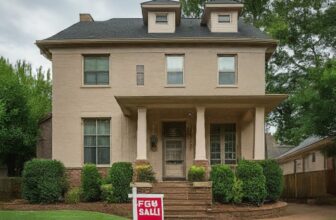
Title insurance will be included in your closing fees when you obtain a mortgage. The policy safeguards the lender, and the premium is only payable once. Owner’s title insurance is another option you have for protection; however, it is not necessary.
What title insurance covers, the extent to which it costs, and if you should get it are the three things you need to know. Working with Bryn Mawr Local Title Insurance Agency can help you get a leg up on the process and stay informed through the process.
Title insurance: What is it?
After the property’s closing, third-party claims that were not discovered during the first title search are covered by title insurance. A third party is a person that does not own the property, such as a building business that was not compensated for their work on the house under a previous agreement.
The phrase “title” describes who has the property legally in their possession. Even years after you have held the property without any issues might pass before a title claim is made. How is this even possible?
When you submit an offer to purchase a home, it is possible that someone else has rights of ownership of which you are unaware. It is possible that not even the present owner is aware of the fact that someone else possesses a claim to the property. Even the heir who possesses such rights may not be aware of them in the event of an unnoticed heir.
The lender of your mortgage will request a title inquiry from a title firm prior to your home loan closing. The title firm looks through public documents pertaining to your house to see if there are any defects in the title documents that might infringe on the buyer’s or the lender’s rights to the property.
An unpaid contractor, taxing body, or lender may impose a lien on the property. Avoid being forced to cover delinquent expenses from a prior owner. Even if you are the property owner, easements are someone else’s permission to utilize your land. The utility company, for instance, will have a right of way that permits them to go through your property whenever they need to operate on the utility lines if they are in your backyard.
Your freedom to utilize your land whatever you like may be restricted by the easement.
Liens, often known as “financial encumbrances,” and easements are examples of encumbrances, as are zoning regulations, restrictive covenants enforced by the homeowners’ organizations, and leaseholder rights.
Among the public records that a title firm searches for are deeds, mortgages, divorce judgements, court judgements, tax records, and child support orders.
The title firm will make an effort to address any issues that the title search discloses. Your broker might need to collaborate with the seller’s agent in some circumstances to persuade the seller to fix the issue. In other situations, the issue can be substantial enough to stop the transaction in its tracks.
What Is Covered by Title Insurance?
An insurance policy on the title to property protects any underlying problems that may have gone unnoticed prior to your purchase. Basically, it is useful if the named company’s check of public records does not turn up any liens and ownership problems.
Some of the problems that an owner’s title policy can defend you from are as follows:
- Mistakes in property surveys
- Border disagreements
- Inaccuracies on the ownership deed
- Prior owner’s infringement of building regulations
- Incompatible wills
- Claims made by an ex-spouse who refused to approve the sale.
- Falsified documents
- Contractors’, taxing authorities’ or prior lenders’ liens
- Encroachments
- Documents incorrectly recorded.
What Gets Excluded from Title Insurance Coverage?
Having said that, title insurance does not shield homeowners from all potential violations of their property rights. It does not shield you from title issues brought on by your own conduct, such as forgetting to pay the contractor who fixed your roof or your property taxes.
It also does not provide protection against the use of eminent domain, which happens when the government seizes privately owned property. Click here to learn more about eminent domain. In other words, it does not offer protection against problems that arise after you purchase the property. It guards against problems that, had you been aware of them at the moment of acquisition, may have had an impact on your choice to buy the property.
Title Insurance Types
Lender’s title insurance, sometimes known as a loan policy, and owner’s title insurance are the two categories of title insurance.
Lender’s title insurance:
Similar to mortgage insurance, this form of title insurance coverage safeguards the financial objectives of the organization that issues the mortgage. It ensures that the lender gets priority over all other liens on the property. When you get financing, whether you are purchasing a house or refinancing, you have to obtain a lender’s title insurance.
Owner’s title insurance:
You, the house buyer, are covered by this policy. The coverage level for an owner’s title insurance policy often equals the purchase price and stays the same for so long as you or your descendants own the house. It is voluntary and only necessary to buy the owner’s title insurance once.
Major loan investors Freddie Mac and Fannie Mae demand that the lender’s title policy coverage be at least equal to the mortgage balance and regularly purchase house loans through lenders after closing. Lender coverage decreases as the principal is paid off on your mortgage.
What Is the Process for Title Insurance?
An owner’s title insurance policy might pay off an undetected lien (https://www.law.cornell.edu/wex/lien) or cover your legal defense costs if someone sues you. It can also offer a financial payout to someone else who unintentionally buys a property from a dishonest seller that did not legitimately own the house using a falsified deed.
Given that it does not protect you, you are presumably less interested in how a lender’s policy operates. But given that you are paying for it, you could still be intrigued. Imagine you lose your house since it turns out you were the victim of a fraudulent sale. You will not continue making mortgage payments. The lender will next submit a claim to its title insurance provider to recover the anticipated mortgage payments.







